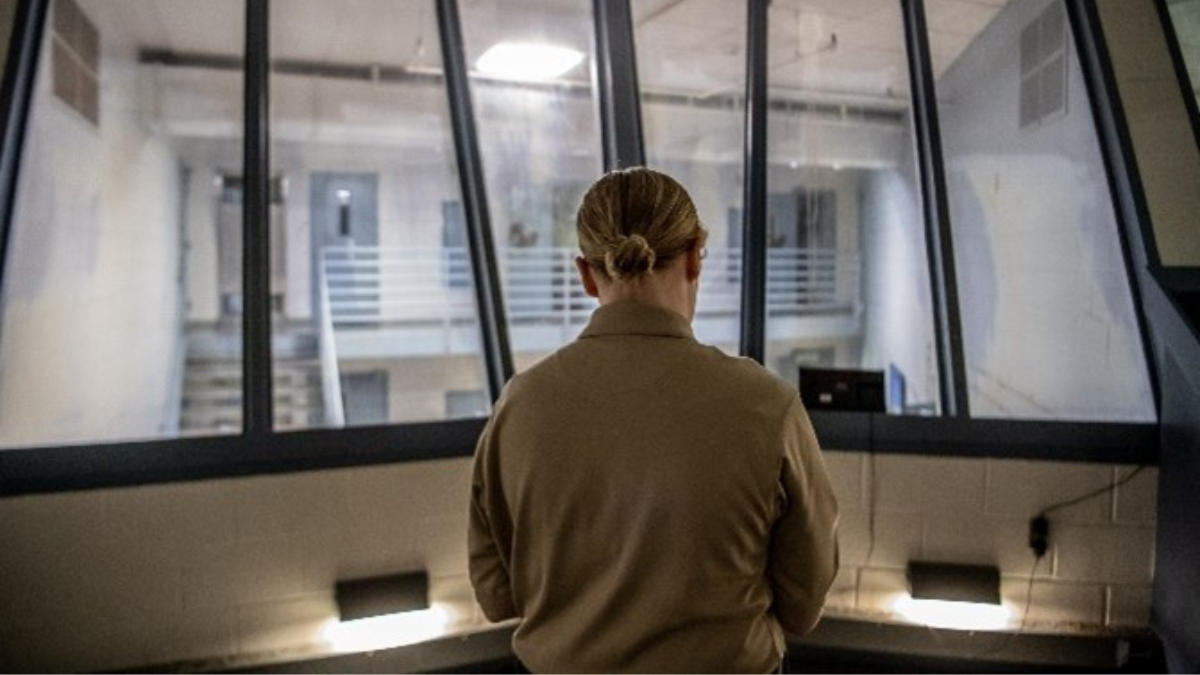Lawmakers say bills passed in the special session to help solve the state’s corrections employment crisis lay a foundation but are not a cure-all.
Lawmakers say bills passed in the special session to help solve the state’s corrections employment crisis lay a foundation but are not a cure-all.
The measures come as a lawsuit demands the state spend more than 10 times the funds allocated to upgrade conditions in the state’s jails and prisons.
Three key corrections bills provide more than $25 million to increase the starting pay and change pay scales for correctional officers and offer retention payments to non-uniformed corrections workers.
SB 1005 earmarks $21.1 million to increase starting pay and change pay scales for correctional officers. SB 1003 and SB 1004 provide nearly $6 million for one-time bonuses for correctional support staff, divided into two payments that begin in October.
Del. David Kelly, R-Tyler, is the Chair of the House Jails and Prisons Committee. He said the bills create a foundation for relief and a pathway forward.
“I was pleased with the way everyone worked together,” Kelly said. “We started detailed conversations with the Senate in May, and met weekly and bi-weekly, through the months that preceded this call. We know it’s not going to solve the problem, but it’s a piece of the puzzle.”
Kelly noted that the passed legislation also includes $5,000 bonuses for critical vacancy pay, re-named from locality pay. He said the stipend will address worker shortfalls statewide.
“The Eastern Panhandle is dealing with losing officers to other states. But there are other areas that are just as in need as the Panhandle because there are different needs,” Kelly said. “It’s the same outcome, they are short officers.”
A lawsuit filed in federal court Tuesday named Gov. Jim Justice and Homeland Security Secretary Mark Sorsaia as defendants. It demands the state spend $330 million for deferred maintenance and worker vacancies in state corrections. The suit asks Justice to call for a special session and submit bills correcting a number of issues to the legislature to correct these issues. The suit, filed by Beckley attorney Steve New who represents the plaintiffs who are inmates of the state, prohibits Justice and Sorsaia from housing inmates in what the suit calls “unconstitutional conditions.”
“Most troubling, is what’s called deferred maintenance in these correctional facilities,” New said. “Mr. Douglas has testified to the legislature to the point that he recently said he’s tired of sounding like a broken record when he comes before the legislature on the issue of deferred maintenance that needs done in West Virginia’s correctional facilities.”
New referred to current state Division of Corrections Chief of Staff Brad Douglas.
New noted several sworn statements that come from a separate lawsuit regarding conditions at the Southern Regional Jail. He said former state Homeland Security Secretary Jeff Sandy, former state Corrections Commissioner Betsy Jividen, and Douglas, were all frank in depositions on how severe understaffing and overcrowding conditions for more than a decade have grown worse with no government relief.
“People have testified that $50 to $60 million dollars is needed to correct the over 1000 staffing shortages in West Virginia’s corrections,” New said. “The bill only provides for $25 million. The rub is nowhere in deferred maintenance to the tune of $270 million mentioned.”
In his Tuesday media briefing, Justice said he was pleased with the outcome of the special session regarding corrections pay raises.
“To get the pay raises to the folks that we had sent up for two consecutive years,” Justice said “Basically the net of the whole thing, fix the corrections dilemma.”
In response to the lawsuit, Justice said the state is working to catch up with corrections challenges and do better.
“There’s $100 million that went into deferred maintenance in the last session,” Justice said. “Right now, we’ve got $25 million dollars, or whatever the number may be, $30 million, of stuff that’s going to corrections. Folks, right now, it can’t be absolutely dead level perfect.”
Also responding to the lawsuit, West Virginia Commissioner of Corrections and Rehabilitations Billy Marshall called it “an insult to our employees and DCR.” Marshall also said “a lot of the complaint has already come to its conclusions in regards to several of the allegations all of which have been investigated.”
He said the evidence didn’t support the claims listed in the complaint.
“We even have gone as far as having recorded inmates’ conversations that went to family members who asked those family members to lie and give false information to try to create some problems for DCR, forcing us to waste our time and money,” Marshall said.
As to jail and prison maintenance, Marshall said “It’s much like owning a home and if you live in a home long enough, there’s going to be things no matter how well you take care of it, there’s going to be things that pop up that you’re gonna need to fix and replace.”
